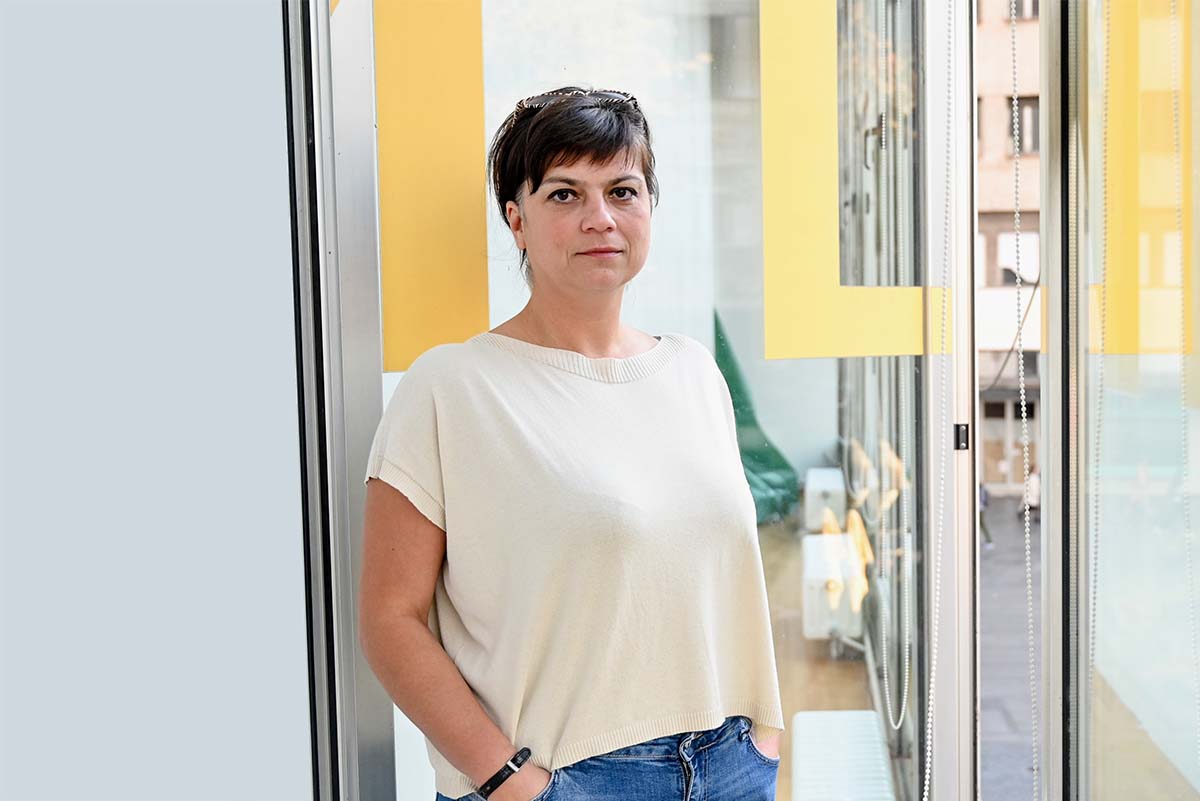I’m a kind of peaceful anarchist and I’m inclined towards the anarchism of Kropotkin, which does not find its moral foundations in holding power over others, in fear of God or masters, but rather in the freedom of the individual and in the understanding of the importance of the well-being of society
I arrived at the Cultural Centre of Belgrade immediately after passing the exam for my master’s studies at the University of Arts. I volunteered on a programme that had the goal of improving permanent intercultural dialogue and cooperation at different levels across the Danube Region. We discussed the culture of peace and the peaceful resolution of problems, although in 1990s Yugoslavia they had been resolved in a manner contrary to this idea. That was back in 2003 at the II International Danube Conference, which focused on presenting culture and art as being crucial for a society. So, whether by coincidence or not, this project laid the foundations of my enthusiasm and provided a kind of methodology that I “applied” moving forward.
After volunteering on this project, I spent many years working at the Cultural Centre of Belgrade as an external associate, i.e., as someone engaged under a fixed-term contract. I collaborated mostly on international programmes, due to my knowledge of different languages, primarily French. In parallel with this, I developed my knowledge through then alternative schools, where one could hear different perspectives of overviewing certain topics and problems compared to the basic education system – in my case, those were cultural studies (Alternative Academic Educational Network (AAOM)) and peace studies, while there were of course more.
It’s always interesting when you return to your first works and realise that’s something you’re still doing today, that it marked your life and that there no longer exists the freedom to start from scratch. One must-read, if you haven’t read it already, is the preface written on this topic by Calvino for his book The Path to the Nest of Spiders. And you should naturally also read that book.
I still think that, in a milieu and time in which the producing of feelings of fear and greed is significantly more powerful compared to individual social or cultural values, we mustn’t stop thinking about how each of us can contribute to the wellbeing of the society in which we live and work, with awareness that this sometimes implies an enduring struggle
My working environment has often been composed of paradoxical constructs, anachronisms, dualities and inconsistencies that have arisen as a consequence of systems, social changes that we/I and/or institutions found it easier or more difficult to follow, and sometimes couldn’t follow at all. The challenge is to be able to perceive an issue from perspectives and domains that are relevant to that issue at any moment. I also employed just such an approach when considering the concept of this year’s 59th October Salon, striving to view the exhibition from all areas and perspectives relevant to it and enabling or opening a public space for as many possible voices of artists, poets, philosophers, theorists, filmmakers, art critics, self-organised groups etc. This would, of course, not have been possible without the collective of the Cultural Centre of Belgrade and those directly included in working on the Salon.
I still think that, in a milieu and time in which the producing of feelings of fear and greed is significantly more powerful compared to individual social or cultural values, we mustn’t stop thinking about how each of us can contribute to the well-being of the society in which we live and work, with awareness that this sometimes implies an enduring struggle.
An important project that I’m working on in parallel with all my other jobs is related to the collecting and forming of a private library of books and drawings that I’m creating together with my children. Reading is important, but conversation is perhaps even more vital, which is why I always like to work with someone.
